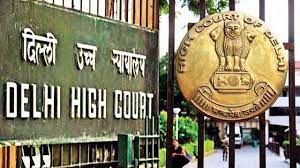CURRENT AFFAIRS
Get the most updated and recent current affair content on Padhaikaro.com
Plea for marital rape to be criminalised
- IAS NEXT, Lucknow
- 18, Jan 2022

Reference News:-
The Delhi High Court is hearing a clutch of petitions challenging the exception to Section 375 of the Indian Penal Code, which exempts forceful sexual intercourse by a man with his own wife from the offence of rape, provided the wife is above 15 years of age, also known as the “marital rape exception”.
What’s the issue?
The petitions before the Delhi High Court asking for marital rape to be criminalised are an outcome of the government’s refusal to pay heed to the landmark report by the Justice J. S. Verma Committee, constituted in the aftermath of the horrific Nirbhaya gang rape in 2012.
- Though the government has said on multiple occasions that such a move will threaten the institution of marriage, experts say recent judgments, including on the right to privacy, have rendered this argument untenable.
Key recommendations made by the Verma Committee:
The Verma panel proposed that “the exception for marital rape be removed” and the law must “specify that a marital or other relationship between the perpetrator or victim is not a valid defence against the crimes of rape or sexual violation”.
What are the arguments by the government against criminalising marital rape?
The government in its affidavit submitted that it had to be ensured marital rape did not become a phenomenon that destabilises the institution of marriage and “an easy tool for harassing the husbands”.
- It added, “What may appear to be marital rape to an individual wife, it may not appear so to others.”
Recent judgments that question the government’s stand on this:
- Independent Thought vs. Union of India verdict of October 2017, in which the Supreme Court criminalised rape with a minor wife.
- The Justice K.S. Puttaswamy vs. Union of India (September 2018) case, where the apex court unanimously recognised the fundamental right to privacy of every individual guaranteed by the Constitution.
- The Joseph Shine vs. Union of India case of October 2018, where a five-judge Bench of the SC struck down adultery as a crime.
Need for an overhaul:
The origin of the marital rape exception lies in the influential treatise on criminal law of England called the ‘History of the Pleas of the Crown’ in which the then British Chief Justice, Matthew Hale, pronounced in 1736, “The husband cannot be guilty of rape committed by himself upon his lawful wife, for by their mutual matrimonial consent and contract the wife hath given herself up in this kind unto her husband which she cannot retract.”
- This immunity has since been withdrawn in several jurisdictions, including in England, where the House of Lords in 1991 held marriage to be a partnership of equals, and no longer one in which the wife must be a “subservient chattel of the husband”.
Also, according to the World Bank, there are at least 78 countries, including Nepal, that have legislation specifically criminalising marital rape.
Legal provisions in this regard:
- Currently marital rape is not a ground for a divorce in Hindu Marriage Act, 1955, Muslim Personal Law [Shariat] Application Act, 1937 and Special Marriage Act, 1954, it cannot be used as a ground for divorce and cruelty against husband.
- Section 375 of the IPC holds that “sexual intercourse by a man with his own wife, the wife not being under 15 years of age, is not rape”.
- No other statute or law recognises marital rape.
- Victims only have recourse to civil remedies provided under the Protection of Women from Domestic Violence Act, 2005.
Criminalisation of Marital Rape is necessary because:
- There are several studies to show the prevalence of non-consensual sex with their wives, and physically forcing their wives to have sex.
- Marriage is an equal-relationship contract and not a one-time consent to everything.
- The legal exception to the rape laws gives men unequal privilege.
- Marital rape victims suffer from long-lasting psychological scars.
- Exception under Section 375, violates Articles 14, 15, 19 and 21 of a woman.
- The patriarchal nature of Indian society, ingrains it in the minds of men that women are expected to comply when their husbands demand sex.
- The victim suffers physical abuse, and she also has to undergo mental trauma of her dignity being violated.
- In the last 70 years, the exemption in Section 375 has remained untouched.
- The prevalence of Child marriages and in many cases women are forcefully married off.
However, there are cons of criminalizing marital rape:
- It “may destabilise the institution of marriage apart from being an easy tool for harassing the husbands”.
- “Rising misuse of Section 498A of IPC”, known as the dowry law, “for harassing the husbands”.
- Other countries, mostly western, have criminalised marital rape does not necessarily mean India should also follow them blindly.
- Law Commission on Review of Rape Laws has examined the issue but not recommended the criminalisation of marital rape.
- What may appear to be marital rape to an individual wife, it may not appear so to others.
- There can be no lasting evidence in case of sexual acts between a man and his own wife.